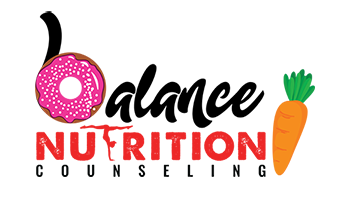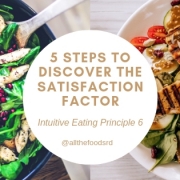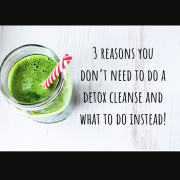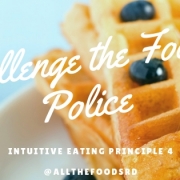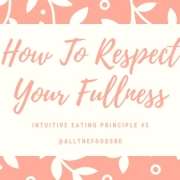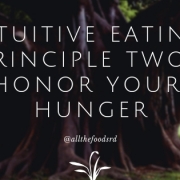It’s time for you to be in your single girl era from diet culture this new year. Diet culture is like that toxic boyfriend you have. It reminds me of the song I Knew You Were Trouble by Taylor Swift. Taylor talks about how she knew that the minute this guy walked in she knew he was bad news and that he took her to places she had never been. So, as Taylor Swift would encourage us to do, it’s time to leave that toxic boyfriend called diet culture behind. If you are in recovery from an eating disorder or just tired of the baloney of diet culture this blog is for you. It’s time to be in our Reputation era and show diet culture who is boss in our lives.
What Is Diet Culture?
Diet culture is a system of beliefs that values thinness above all else, labels foods as good and bad, believes that weighing less means you’re more healthy, and that fat is bad. Diet culture is driven by systems such as the patriarchal ideal of what women’s bodies should look like and the $76 billion dollar diet industry that profits off your insecurities. That is $76 billion reasons the diet industry wants you to stay entrenched in their beliefs.
5 Ways You Can Break Free From Diet Culture
- Acknowledge it in the world around us. Let’s play a game of I Spy but with all the diet culture messages we see and hear. Every time someone talks about how bad they were this weekend because they had ice cream, that’s diet culture. Ads for Ozempic on tv is also diet culture. Magazines telling us how to lose 10 pounds in 10 days is also diet culture. Every time you see a diet culture message write it down in your notes app or journal for a week. This exercise will really open your eyes to how pervasive diet culture is.
- Journal and process how diet culture has impacted your life. How has diet culture impacted your life? How has diet culture caused you harm? Has diet culture influenced your relationship with food or your body? I encourage you to journal and reflect on these questions. These questions can also be processed with a therapist if they feel too heavy or you find out you need extra support.
- Detox your social media. Social media can really be so influential in our lives. This is a double-edged sword. It can be used for good or bad, and how we let it influence us is in our hands. Scroll through your social media feed and notice what you see. If you are mainly seeing thin bodies, diet culture, and wellness culture it might be a good idea to unfollow some people. Some ideas to make your social media feed more uplifting would be to follow those in diverse bodies, follow non-diet therapists or dietitians, follow pet accounts or cute animal accounts, follow hobby accounts like a knitting account, and follow cooking accounts.
- Work with a therapist and registered dietitian. If your relationship with food and your body is complicated, it might be helpful to work with a therapist and really explore that. Registered dietitians can help you work on your relationship with food and body image. You are so worthy of healing and hope.
- Practice Intuitive Eating. Intuitive Eating is a self-care framework created by Evelyn Tribole and Elyse Resch. Intuitive Eaters use hunger and fullness cues to listen to their bodies and guide eating. Intuitive Eating has 10 principles which are:
- Reject the diet mentality.
- Honor your hunger.
- Make peace with food.
- Challenge the food police.
- Discover the satisfaction factor.
- Feel your fullness.
- Cope with your emotions with kindness.
- Respect your body.
- Movement – feel the difference.
- Honor your health – gentle nutrition.
Registered dietitians who specialize in Intuitive Eating can help you on this journey. If you are interested in learning more about Intuitive Eating, I would encourage you to read Intuitive Eating by Evelyn Tribole and Elyse Resch.
Contributed by intern, Anna Nakamoto
